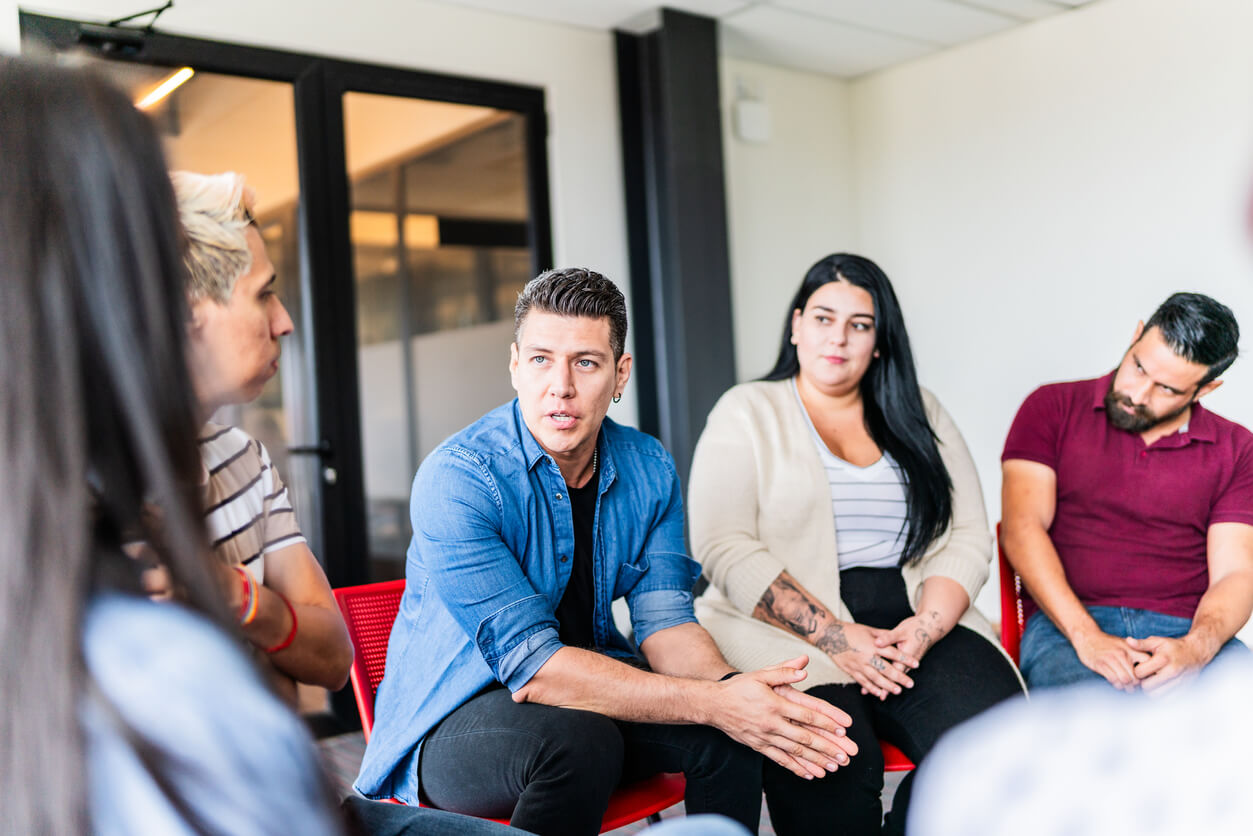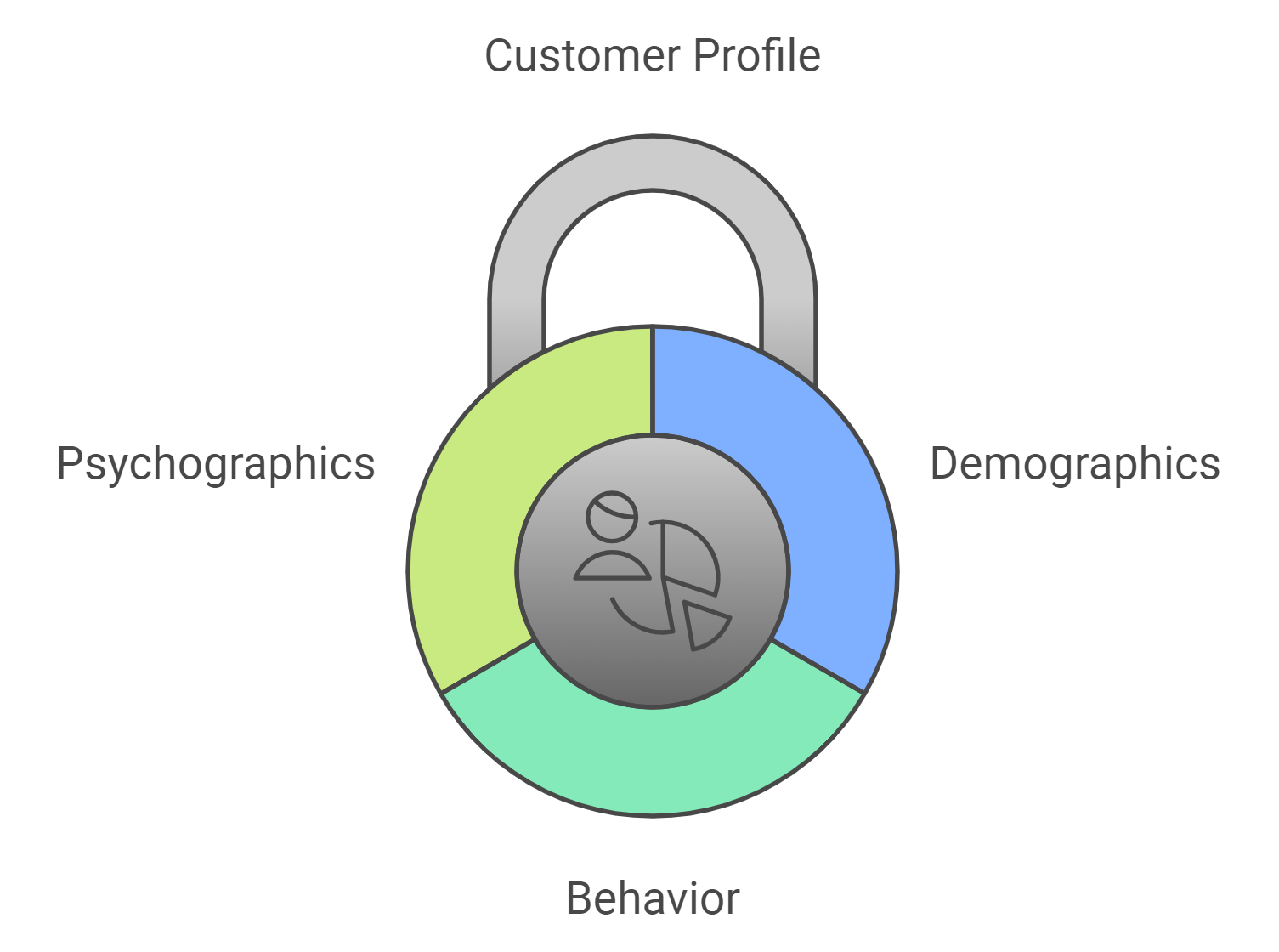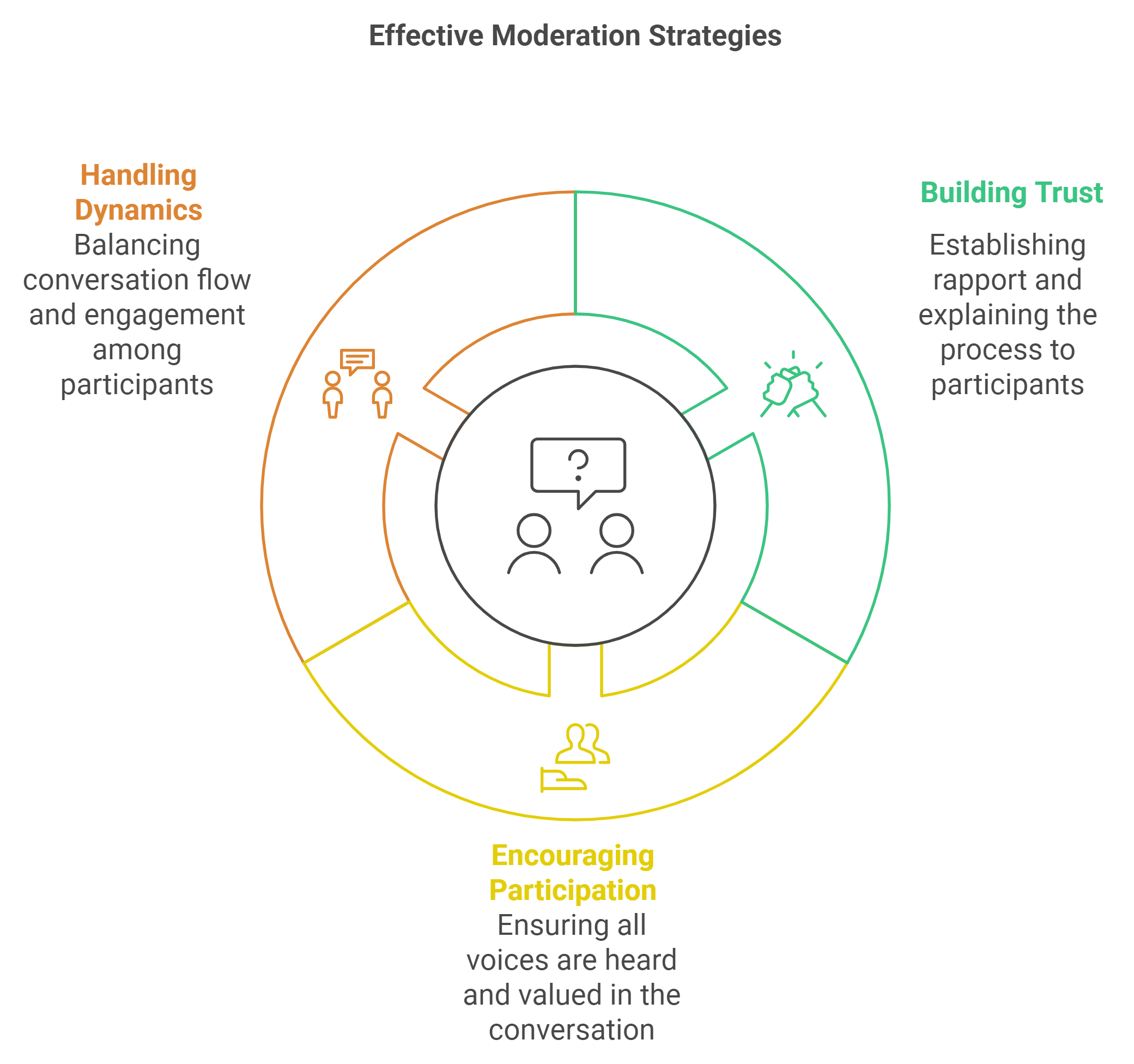Comment animer un groupe de discussion

En termes simples, un groupe de discussion est généralement un groupe de 6 à 12 personnes présentant des caractéristiques démographiques similaires (par exemple, acheteurs de voitures, patients diabétiques, nouvelles mères) qui sont réunies pour discuter d'un sujet « ciblé ».
Have you ever wondered how to extract actionable insights directly from your target audience? At SIS International, we’ve seen firsthand how focus groups can be a game-changer in understanding the true sentiments and motivations behind consumer behavior.
As a CEO, I’ve had the privilege of working with major global brands including Samsung, Johnson & Johnson and Kraft Heinz, and can tell you that conducting a properly structured focus group is frequently what unlocks deep, meaningful insights. We’ve run focus groups for clients in many industries at SIS International—from healthcare to consumer goods—and we know firsthand how they reveal actionable insights that would otherwise remain dormant.
So… What’s a Focus Group?
They are discussions facilitated by a trained moderator who follows a guide to ensure that certain questions are asked about a product or service. The key to this qualitative technique is the open dialog and dynamic interaction among the participants.
Dans de nombreux cas, un objet physique, un prototype de produit ou un concept est présenté au groupe. Ensuite, les fonctionnalités, avantages ou attributs potentiels, les messages ou publicités marketing, ou une maquette d'un site Web proposé peuvent être discutés. Des projecteurs, des tableaux à feuilles mobiles et des tableaux blancs sont également disponibles pour stimuler les réactions du groupe.
Un groupe de discussion dure généralement 1 à 2 heures, la norme étant d'environ 90 minutes. Cependant, comme le nombre habituel de participants est de 8 à 10, plusieurs groupes de ce type, souvent situés dans des lieux différents, sont organisés pour recueillir le plus large éventail d'idées et de commentaires.
Why Do Businesses Need to Know How to Conduct a Focus Group?
“Through open-ended discussions, you can uncover emotional triggers, motivations, and even challenges that your customers may not be fully aware of themselves.”
At SIS International, we’ve worked with both ends of the spectrum—from multinational giants like General Electric to cutting-edge startups breaking into emerging markets. It is clear that businesses that have the skill of how to conduct a focus group in the first place hold an advantage when it comes to customers’ insight and data-driven decision-making.
We need to adapt, as technology is moving fast, and consumer desires and behaviors are changing rapidly. These trends will continue to evolve, and focus groups will give businesses the agility they need to be cutting edge by offering insight into how new products, or a new marketing angle.
Without this understanding, companies run the risk of taking action based on incomplete or inaccurate information. As my work at SIS International has shown, focus groups do more than provide feedback—they reveal the foundations of consumer behavior, motivations, and preferences. Here are a few of the advantages we commonly emphasize to our clients:
- Rich Qualitative Insights: Focus groups allow for more detailed responses than traditional surveys.
- Uncover Hidden Needs and Concerns: Participants often express thoughts or concerns they might not have previously articulated.
- Real-time Feedback: Focus groups provide immediate, actionable insights.
- Testing Ideas and Concepts: Focus groups are the perfect environment to evaluate ideas and concepts before they hit the market.
- Relations clients améliorées: By engaging directly with consumers in a focus group, businesses can build stronger relationships and trust.
- Prise de décision éclairée: Focus groups offer businesses a way to make more informed decisions about product development, marketing strategies, and customer engagement efforts.
Quand utiliser les groupes de discussion

Chaque méthode d’étude de marché a ses avantages, et un groupe de discussion ne fait pas exception. Voici quelques éléments qui rendent les groupes de discussion uniques.
- Il arrive parfois que les réponses « oui/non » ou à choix multiples ne suffisent pas pour comprendre les comportements ou les attitudes des consommateurs. Dans ces cas-là, une approche qualitative peut être utilisée pour poser des questions ouvertes qui peuvent non seulement contribuer à confirmer les hypothèses du projet, mais également aboutir à des réponses inattendues et innovantes.
- Presque toujours, il y a une salle d'observation pour les clients qui leur permet d'assister directement et d'enregistrer l'événement discrètement derrière un miroir sans tain. Depuis l'arrière-salle (de visionnage), ils peuvent instantanément soumettre des questions ponctuelles et apporter toutes les précisions nécessaires au modérateur.
The Evolution of Focus Groups
Au cours des dernières années, des variantes du groupe de discussion traditionnel en face à face sont apparues.
- Dans la version en ligne, le modérateur peut exposer des questions et des stimuli visuels suivis d'un échange rapide de messages texte avec les réponses et les entrées. Il n'y a pas de conversation en direct.
- Une autre approche consiste à utiliser des webcams afin que les visages de plusieurs personnes (généralement pas plus de 8) puissent se voir simultanément sur leurs écrans d'ordinateur et simuler plus fidèlement une interaction en personne.
- Ces techniques permettent de mener des groupes de discussion sans tenir compte de la géographie ou des fuseaux horaires, ce qui est utile si le bassin de recrues dans une zone donnée est trop restreint. Ils éliminent également les coûts de location des installations, de déplacement et de rafraîchissements.
Choosing the Right Participants for Your Focus Group
Selecting the right participants is the first crucial step in organizing a successful focus group. It ensures they are representative of your target market. At SIS International, our team works closely with clients to identify participants who match specific demographics, behaviors, and psychographics. For example, if a client is testing a new luxury product, we would focus on individuals who not only fit the right income bracket but also exhibit attitudes and behaviors aligned with luxury consumption.
When choosing participants, consider the following:

- Données démographiques: Age, gender, income level, education, and location.
- Comportement: Past purchase behaviors, usage habits, or specific interests that align with your product.
- Psychographics: Personality traits, values, and lifestyle preferences that may influence their responses.
This tailored approach helps ensure that the feedback you collect is relevant and can be directly applied to your business strategy.
Screening Process
Using screening surveys or interviews is vital to assess whether potential participants fulfil the requisite criteria. However, conduct screening questionnaires that would help select only those who are most relevant to the research objective. For example, questions about whether they have prior experience of similar products, preferences, attitudes that fit with the aim of your study.
Designing Effective Focus Group Questions

The success of a focus group largely depends on how questions are structured. The goal is to encourage open-ended discussions that provide deep insights. When designing questions, avoid yes/no questions, and instead, ask questions that prompt participants to elaborate on their thoughts and feelings.
Some best practices for framing effective focus group questions include:
- Use open-ended questions: For example, instead of asking “Do you like this product?”, ask “What do you like most about this product?”
- Ask follow-up questions: Questions like “Can you explain why?” or “How did that make you feel?” encourage participants to delve deeper into their responses.
- Vary the question types: Start with general, broad questions to warm up the group, and then move into more specific, targeted questions.
Avoiding Bias
We have to remain neutral as moderators and convey things in a transparent way to get true reflections from the participants. Formal bias exists as well, such as asking leading questions. For example, rather than asking, “How much do you love this new feature? ask, “What do you think of this new feature?”
Here are a few strategies to avoid bias:
- Use neutral language: Ensure questions are phrased in an impartial manner.
- Don’t influence answers: As a moderator, it’s crucial not to steer the conversation in any particular direction. Your role is to facilitate, not dictate, the discussion.
Moderating a Focus Group
The success of a focus group relies heavily on the moderator’s ability to facilitate the conversation without influencing the participants. At SIS International, we’ve trained our moderators to guide discussions in a way that makes participants feel comfortable, heard, and able to express their thoughts freely.
A moderator’s primary responsibilities include:
- Keeping the discussion on track: While it’s important to allow participants to speak freely, the moderator must ensure the conversation stays relevant to the research objectives.
- Encouraging participation: It’s essential that all members have a chance to contribute. A skilled moderator will draw out quieter participants and make sure their voices are heard.
The moderator should also be neutral and empathetic, creating an atmosphere where participants feel comfortable sharing their true feelings and experiences.
Creating an Inclusive Environment
Participants must feel that their opinions are valued and that they can speak openly without fear of judgment. At SIS, we focus on:

- Building trust: Start by establishing rapport with participants, introducing yourself, and explaining the process.
- Encouraging equal participation: Sometimes, dominant participants can overpower the conversation. A good moderator will tactfully redirect the conversation to ensure everyone is involved.
- Handling group dynamics: It’s important to maintain a balance between allowing the conversation to flow and ensuring that all participants remain engaged.
Analyzing Focus Group Data
After the focus group session, the data gathered needs to be transcribed and coded. Transcription is the process of converting audio or video recordings into text format, and coding involves categorizing the data into meaningful themes.
The coding process involves:
- Identifying key themes: We group similar responses together to identify patterns or recurring ideas.
- Categorizing data: Based on the research objectives, we categorize the responses (e.g., positive vs. negative feedback, emotional vs. rational responses).
Extracting Actionable Insights
Once the data is transcribed and coded, the next step is to analyze it to extract actionable insights. This is where the real value of a focus group emerges. At SIS, our team of experts reviews the data for key patterns and insights that are relevant to our clients’ business needs. We look for:
- Emerging trends: What new preferences, behaviors, or challenges are participants expressing?
- Customer pain points: Are there any common complaints or issues that need to be addressed?
- Opportunity areas: Based on feedback, are there areas where the company can improve or innovate?
Finally, we provide our clients with a detailed report that not only includes raw data but also actionable recommendations that can directly inform marketing strategies, product improvements, or customer engagement efforts.
Costs and other tradeoffs of Focus Groups

Le recrutement est l’une des étapes les plus importantes et les plus difficiles de la conduite d’un groupe de discussion. Il est difficile et long de contacter et d’attirer les bonnes personnes. Des questions de sélection minutieuses peuvent améliorer les chances qu'une personne invitée soit véritablement « qualifiée » et non « professionnelle ».
Adequate compensation (cash always works best) is a strong inducement to ensure attendance and cooperation but adds to the research’s expense. Hiring and meeting with a trained facilitator/moderator will impact time and budget. However, the experience of such a person trained to listen, digest, and provide an objective analysis of findings is a justified expense. In addition, the moderator will usually handle recruiting and renting a facility and oversee video and audio recordings of the sessions.
Il faut prendre en compte les déplacements, l'hébergement, les repas et les frais connexes du personnel interne ainsi que du modérateur. En tant que tels, les groupes de discussion ne devraient être la méthode de choix que lorsqu'aucun autre moyen n'existe pour atteindre les objectifs de recherche.
FAQ: How to Conduct a Focus Group
1. What is a focus group, and why is it important?
A focus group is a qualitative research technique that involves a small group of individuals discussing their views, experiences, and perceptions related to a particular product, service, or concept. It’s valuable because it enables businesses to gain deep insight that quantitative data (such as surveys) can’t offer.
2. How do I select the right participants for a focus group?
To select the right participants, start by defining your target audience based on données démographiques (age, gender, income), behavior (past purchase habits, usage patterns), and psychographics (values, lifestyle). Screening questionnaires or interviews help ensure that participants match your research objectives. This ensures that the feedback you receive is relevant and valuable to your business goals.
3. How should I prepare questions for a focus group?
The key to a successful focus group is asking open-ended questions that prompt detailed responses. Avoid yes/no questions and aim to gather qualitative data by asking about participants’ feelings, experiences, and opinions. It’s also important to ensure that questions are neutral to avoid bias. For example, instead of asking, “What do you think of this product’s amazing new feature?” try “What are your thoughts on this new feature?”
4. What does the role of the moderator entail?
The moderator is responsible for guiding the conversation while ensuring that all participants have the opportunity to contribute. They should be neutral, ensuring the discussion stays on track without influencing the responses. A skilled moderator creates an inclusive and comfortable environment where participants feel free to share their honest opinions, even if they are hesitant or disagree with others.
5. How do I analyze focus group data?
Transcribing and Coding the Data After the focus group. Transcription is the process of transforming the recorded conversation into written text, while coding involves categorizing responses into themes. Once the data has been classified, the next step is to formulate actionable insights — trends, pain points, and possible improvements. At SIS, we make sure that these insights are directly aligned with your business goals and lead to actionable recommendations.
6. How long does a focus group session typically last?
A focus group session usually lasts between 60 to 90 minutes. This is enough time for participants to discuss the topics in depth without causing fatigue. The length may vary depending on the scope of the research or the number of topics being covered, but it’s important to keep the session engaging and productive.
7. How many participants should be in a focus group?
Focus groups typically consist of 6 to 12 participants. This size is ideal because it’s small enough for everyone to contribute, but large enough to generate diverse perspectives. If the group is too small, you may not capture a broad range of opinions; if it’s too large, it may be difficult to manage and ensure everyone participates.
8. Can focus groups be done online?
Yes! Online focus groups have become common and more importantly in the world that we live in today. Virtual sessions can be done via video conferencing which enables participants from different geographic locations to jump to the discussion. Facilitated properly using well-prepared technology, online focus groups can work effectively as their in-person counterparts.
9. What types of businesses benefit from focus groups?
Focus groups are useful for businesses across a wide range of industries, including consumer goods, technologie, healthcare, et entertainment. They are especially beneficial for companies launching new products, entering new markets, or testing marketing strategies. At SIS International, we’ve worked with clients like Nike, Unilever, et Johnson & Johnson, helping them understand consumer perceptions and refine their products or messaging.
10. How do I ensure that the focus group feedback is reliable?
To receive effective feedback, it is crucial to build a comfortable and non-judgmental environment in which participants feel that their feedback is valued. No leading the conversation, and no taking sides. Also, carefully selecting participants that make sense for the research and effective screening can ensure that the feedback is relevant yet reliable.
What Makes SIS International a Top Focus Group Company?
À SIS International, we’ve been leading the way in market research for over 40 years, helping some of the world’s most iconic brands gain deeper insights into their customers. Having conducted countless focus groups over the years we have honed our approach to a methodology that consistently produces actionable insights for our clients.
Central Location and Global Reach:
Our headquarters, strategically located in the heart of New York, allows us to easily serve both North American and international markets. Our central location means that we can efficiently organize focus groups in major cities worldwide, helping global brands stay connected to diverse consumer groups across different regions.
Affordability without Compromising Quality:
We believe that high-quality research should be accessible to businesses of all sizes. Our cost-effective solutions ensure that you get the best value for your investment, making us a trusted partner for many global businesses.
Proven Expertise and Experience:
With over four decades of experience in market research, we’ve refined our focus group methodologies to ensure the most accurate and insightful results. We’ve had the privilege of working with top brands like Pfizer, Kraft Heinz, et Johnson & Johnson, helping them make critical business decisions based on the valuable feedback gathered from our expertly moderated focus groups.
Customized Approach for Every Client:
What sets SIS apart is our ability to adapt our focus group research to meet the specific needs of each client. We don’t believe in one-size-fits-all solutions, our team ensures that the focus group is tailored to the exact objectives of the project.
Global Expertise in Market Insights:
We pride ourselves on our ability to gather not only feedback from your customers but insights that span cultural, regional, and demographic boundaries.
Notre emplacement à New York
11 E 22nd Street, étage 2, New York, NY 10010 Tél. : +1(212) 505-6805
À propos de SIS International
SIS International propose des recherches quantitatives, qualitatives et stratégiques. Nous fournissons des données, des outils, des stratégies, des rapports et des informations pour la prise de décision. Nous menons également des entretiens, des enquêtes, des groupes de discussion et d’autres méthodes et approches d’études de marché. Contactez nous pour votre prochain projet d'étude de marché.



